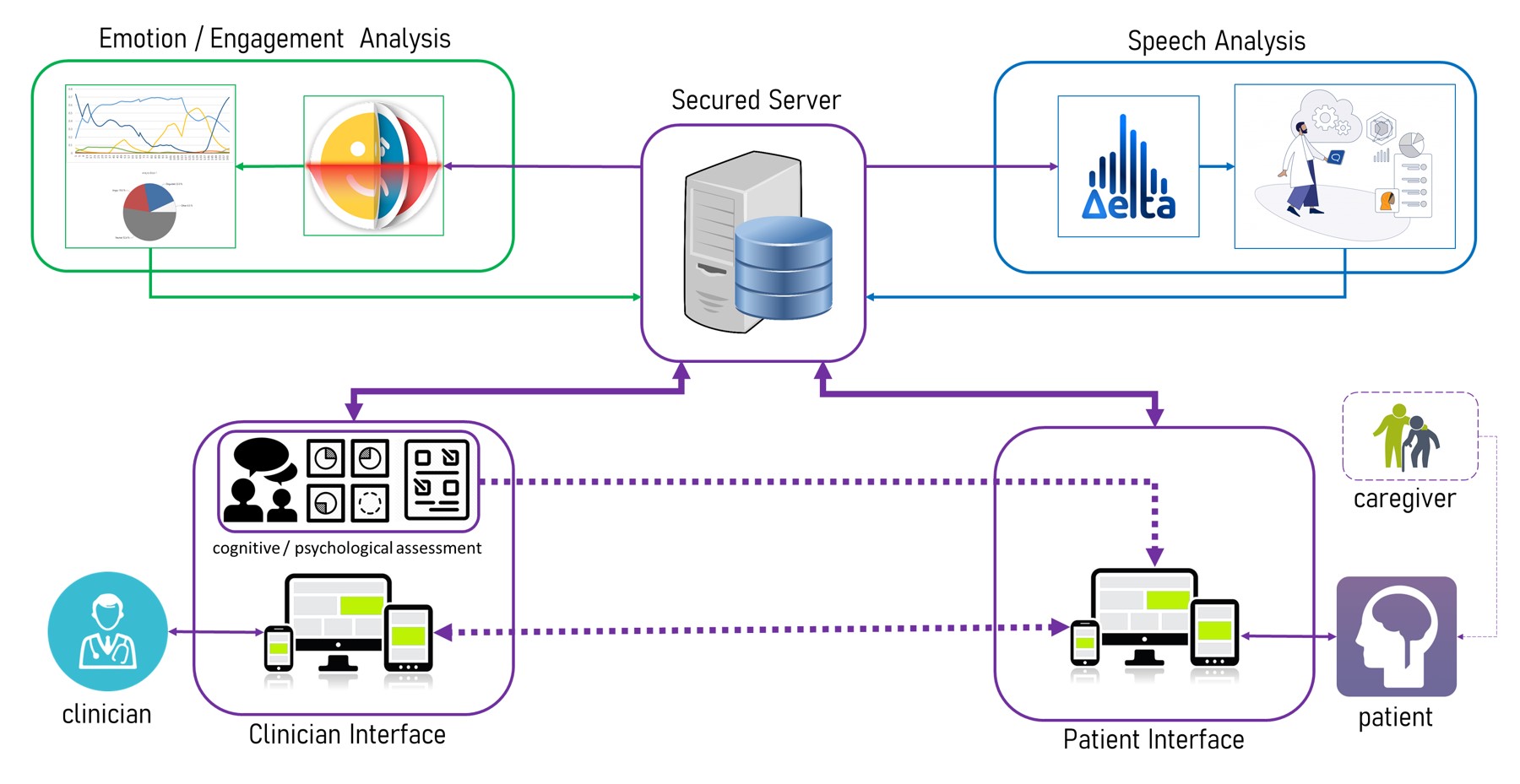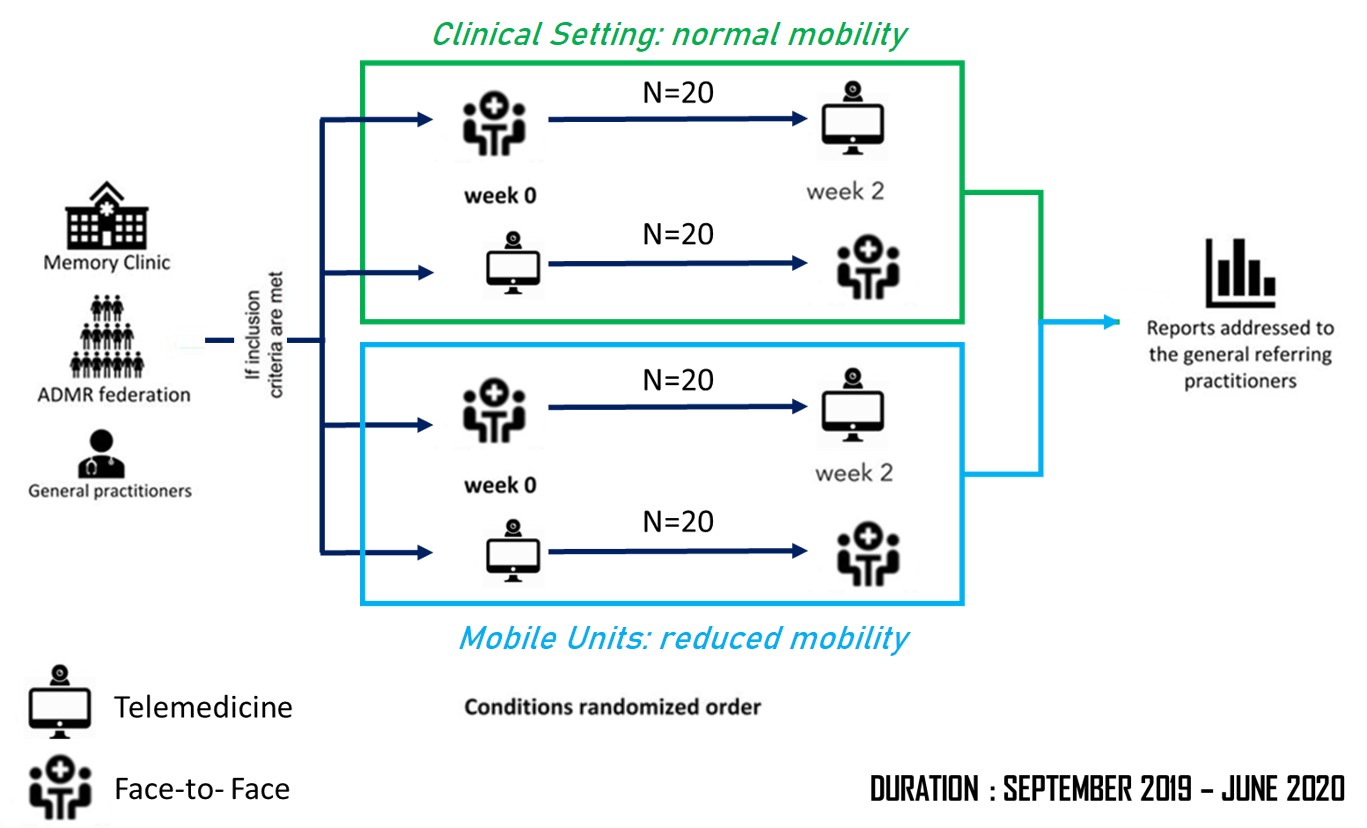Section: New Results
DeepSpa Project
Participants : Alexandra König, Rachid Guerchouche, Minh Tran-Duc, Antitza Dantcheva, S L Happy, Abhijit Das.
The DeepSpa (Deep Speech Analysis, January 2019 - June 2020) project aims to deliver telecommunication-based neurocognitive assessment tools for early screening, early diagnostic and follow-up of cognitive disorders, mainly in elderly. The target is also clinical trials addressing Alzheimer’s and other neurodegenerative diseases. By combining AI in speech recognition and video analysis for facial expression recognition, the proposed tools allow remote cognitive and psychological testing, thereby saving time and money.
The partners of the project are:
Project structure
The DeepSpA project is structured in two use-cases:
-
Use-case 1: remote assessment through phone for early screening of cognitive disorders (University of Maastricht, Jansen & Jansen and Ki-element): using AI based speech recognition; assessments through phone are made possible. A clinical trial is currently running in Maastricht (by end 2019, 70 subjects will be included, and 50 others will be included in 2020), the goal is to study the feasibility of such phone assessment in comparison to face-to-face assessment.
-
Use-case 2: remote assessment through video-conference system (telemedicine tool) (Inria, Jansen & Jansen and Association Innovation Alzheimer): Inria developed a telemedicine tool which allows complete remote assessment. AI based speech and facial expression recognition empower the cognitive assessment by providing extra features useful for clinicians.
Telemedicine / Clinical Study with Digne-les-Bains
In order to evaluate the feasibility of remote assessment through the telemedicine tool, a collaboration with the city of Digne-les-Bains started in March 2019. The Hospital of Digne-les-Bains, la Maison de la Santé and the ADMR (association dealing with isolated people) are involved in a running clinical study, which aims at evaluating the feasibility of the remote assessment in two different setups:
-
Clinical setup: a fixed place where the participant will undergo the telemedicine session: clinic, hospital, pharmacy, health centres ....
-
Mobile Units: a mobile unit goes to the subjects home, the telemedicine session is done inside the mobile unit (e.g., van).
We already started including subjects in the clinical setup case. By end 2019, we expect to include about 15 subjects, 25 extra subjects will be included during 2020. Mobile units setup will be tested during 2020.
First results and observations already showed that the telemedicine tool allows full assessments. Clinicians and patients showed strong interest and appreciation of such tool.
Facial expressions recognition and engagement evaluation in the telemedicine tool
The STARS team is doing research on facial expressions analysis, which could be integrated as part of the vision module of the telemedicine tool [25].
Notable software related to this research is the provided API on the cloud, which allows sending video files and retrieving emotions, gaze direction, facial movements and head direction (implemented by S L Happy).




